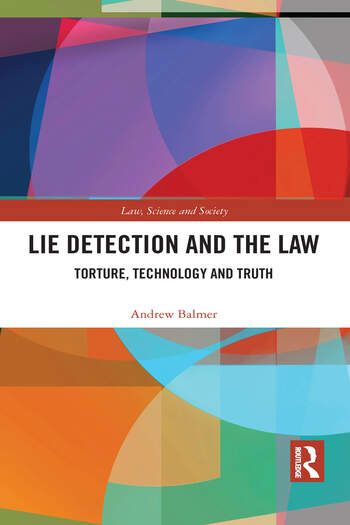We will be closed from 5pm Thursday 17th April for the Easter Bank Holidays, re-opening at 8.30am on Tuesday 22nd April. Any orders placed during this period will be processed when we re-open.

This book develops a sociological account of lie detection practices. Bringing together social theories of intersubjectivity with science and technology studies scholarship on ontologies, it examines how, in socio-legal contexts, it is determined whether an action is a lie or not, and with what consequence. Philosophical work on lying has focused on defining the phenomenon by reference to an individual's known intentions in order to then make moral prescriptions about human action. However, in this focus the philosophical project fails to articulate how lying is accomplished in everyday social relations.
This book deploys a range of intersubjectivist theories of social action to better explore how lying actually occurs in practice. Through a consideration of a variety of socio-legal practices, from US criminal trials to the post-conviction management of sex offenders in the US and UK, it explore how different ontologies of lying inform the maintenance of social order and justice. Based on data from interviews with neuroscientists, court cases, and the analysis of a wealth of philosophical and scientific literature, this book will be of interest to socio-legal scholars, criminologists and others working at the intersection of law and science.